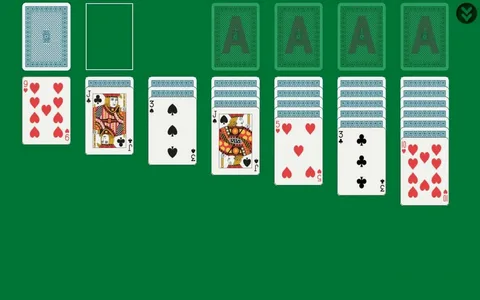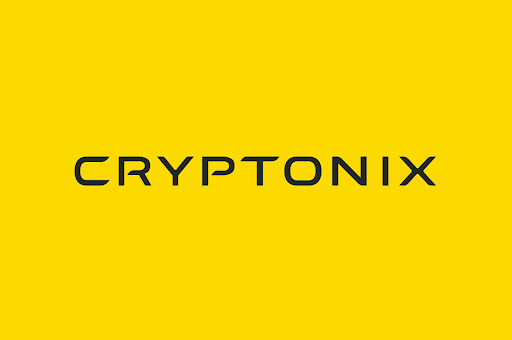In an age where downtime often means doom-scrolling or mindlessly watching videos, a humble classic is quietly reclaiming its space as the thinking person’s pastime: Freecell Solitaire. First introduced to many via Microsoft’s Windows 95 suite, this single-player card game has outlived decades of digital trends not by flashy design or competitive play—but through a uniquely satisfying blend of strategy, logic, and low-stakes relaxation.
While its cousins like Klondike or Spider Solitaire may hog the spotlight, freecell solitaire has earned a loyal following for its cerebral demands and meditative rhythm. It isn’t just a game you play to pass time—it’s a tool for mental sharpening, stress relief, and a reminder that some of the most effective ways to unwind don’t require a streaming subscription or social media account.
A Brief History: From Boards to Bytes
Freecell, in its essence, is a variation of solitaire that traces its roots to the card games of the 18th and 19th centuries. The version we know today was first computerized by Paul Alfille in 1978 as part of a project on the PLATO system, a pioneering educational computing platform. But it wasn’t until Microsoft included Freecell Solitaire in its Windows operating systems—starting with Windows 95—that the game became a household name.
Interestingly, Microsoft originally embedded the game not just as a leisure tool, but also as a sneaky way to demonstrate how well the operating system handled GUI elements like drag-and-drop. Who would have thought debugging software could lead to a global pastime?
The Rules: Simple to Learn, Challenging to Master
At first glance, Freecell looks deceptively similar to standard solitaire. You’re given a standard 52-card deck, dealt face-up into eight cascades. The objective? Move all cards to four foundation piles, sorted by suit and in ascending order.
Here’s where things get interesting: unlike most solitaire variants, Freecell Solitaire gives players complete visibility of all cards right from the start. There are no hidden elements—no cards waiting to be revealed under others. This transforms the game from a luck-based puzzle into a fully strategic challenge.
Players can move cards individually or in sequences (provided there are enough “free cells” or empty columns to support the move). Success depends less on chance and more on foresight, pattern recognition, and planning several steps ahead.
Why It’s Surprisingly Brainy
You wouldn’t think a digital card game could be so mentally demanding—but neuroscientists might beg to differ.
- Executive Function in Action
Freecell exercises what psychologists refer to as executive functions—skills like working memory, flexible thinking, and self-control. Because players must mentally visualize the impact of moving one card over another, the game essentially becomes a workout for the prefrontal cortex. - Pattern Recognition and Strategy
The visible layout lets you analyze potential outcomes before committing to a move. This promotes a strategic mindset akin to chess or Sudoku—games commonly celebrated for their cognitive benefits. - Decision Fatigue Relief
Despite its mental demands, playing Freecell Solitaire doesn’t feel taxing. In fact, it’s often relaxing. Why? Because it offers a structured environment with a clear goal and finite number of choices—just enough to engage the mind without overwhelming it. For people juggling jobs, kids, or constant decision-making, that kind of clarity is refreshing. - Meditative Play
The repetitive actions of dragging cards, coupled with calming background music on some platforms, can lull the mind into a state of flow—a psychological state where you lose sense of time and experience pure focus. It’s the same reason coloring books and knitting have become popular for mental wellness.
A Pandemic-Era Resurgence
While Freecell Solitaire never truly went away, it enjoyed a noticeable resurgence during the COVID-19 pandemic. With more people at home and searching for screen-based ways to pass time without becoming overwhelmed, the game quietly made its way back onto screens—sometimes rediscovered through nostalgia, other times recommended by wellness blogs for its stress-reducing properties.
Teachers began suggesting it as a focus aid during short breaks. Therapists started referencing it as a calming activity for clients with anxiety. Seniors turned to it not just for fun, but to keep their cognitive skills sharp.
In a digital world cluttered with content, Freecell Solitaire offered something refreshingly minimal—and powerful.
Freecell vs. Other Solitaire Games
There’s no denying that solitaire, in all its forms, is one of the most played game genres worldwide. But what sets Freecell apart?
- No Randomness: Most solitaire games rely on luck, often requiring multiple re-deals to stumble upon a winnable configuration. In Freecell, nearly every game is solvable—meaning winning is a matter of how you play, not whether you drew the right card.
- All Cards Visible: This alone changes the entire nature of play. The game becomes a puzzle to decode, not a mystery to hope for.
- Fewer Dead Ends: Strategic players rarely find themselves stuck in Freecell. And when they do, they often view it as a learning opportunity rather than a failed game.
In essence, it rewards clear thinking, not gambling instincts—a trait that appeals to professionals, academics, and puzzle enthusiasts alike.
Freecell in the Modern Era
You no longer need to dust off your old Windows PC to enjoy the benefits of Freecell Solitaire. The game has evolved with the times, appearing on smartphones, tablets, and gaming websites in both free and premium formats.
Today, you can find:
- Daily challenges and streak counters that turn the game into a habit-forming ritual.
- Accessibility options like dark mode, colorblind support, and tap-to-move features.
- Community leaderboards that allow for gentle competition without turning the game into a social media clone.
The modern UI updates have made Freecell more beautiful and user-friendly than ever, yet the core gameplay remains timeless.
Who’s Playing and Why It Matters
Contrary to the stereotype of Freecell being “your dad’s computer game,” its player base is surprisingly diverse. College students use it to de-stress between study sessions. Remote workers use it as a productivity break that doesn’t spiral into endless scrolling. Retirees use it as a way to keep their minds active.
There’s even growing interest in the game within digital wellbeing communities. Mental health professionals increasingly acknowledge the benefits of casual gaming, particularly games like Freecell Solitaire that encourage logical reasoning and do not rely on addictive in-app purchases or social validation mechanics.
The Science of Play—and Why Freecell Works
If you’re still skeptical about whether a card game can offer real benefits, consider this: researchers have long studied the impact of games on cognition, and many findings suggest that certain types of games—especially those emphasizing strategy, delayed gratification, and memory—can help maintain or even improve mental performance.
Freecell hits the sweet spot:
- Engagement without obsession
- Cognitive stimulation without stress
- Simplicity without boredom
That’s a rare trifecta in today’s entertainment landscape.
How to Start (and Stick With It)
Getting into Freecell Solitaire is easy—really. You can play it for free on most devices with zero learning curve. But to make it part of a brain-healthy routine, try these tips:
- Play a game or two daily, especially during mid-day slumps when your brain needs a refresh.
- Avoid multitasking while playing. Let it be a time to unplug from work chatter or digital distractions.
- Challenge yourself with difficult boards—many apps let you pick the game number or difficulty level.
- Track your progress through daily streaks or self-imposed win goals.
- Use it as a buffer between intense tasks. Studies show that structured breaks improve overall focus and productivity.
Final Thoughts: Not Just a Game, But a Mental Reset
In a culture of constant noise and infinite scrolling, Freecell Solitaire offers something countercultural—an elegant, quiet, strategic challenge. It won’t promise dopamine hits like TikTok, or infinite variety like YouTube, but it might just give you something better: clarity, calm, and the subtle joy of using your brain well.
So the next time you find yourself hovering over a YouTube rabbit hole or reaching for your social app out of habit, consider clicking on Freecell instead. You might be surprised by how good it feels to think deeply while unwinding—one card at a time.
By reconnecting with Freecell Solitaire, you’re not just playing a game. You’re giving your brain the break—and the boost—it truly deserves.





